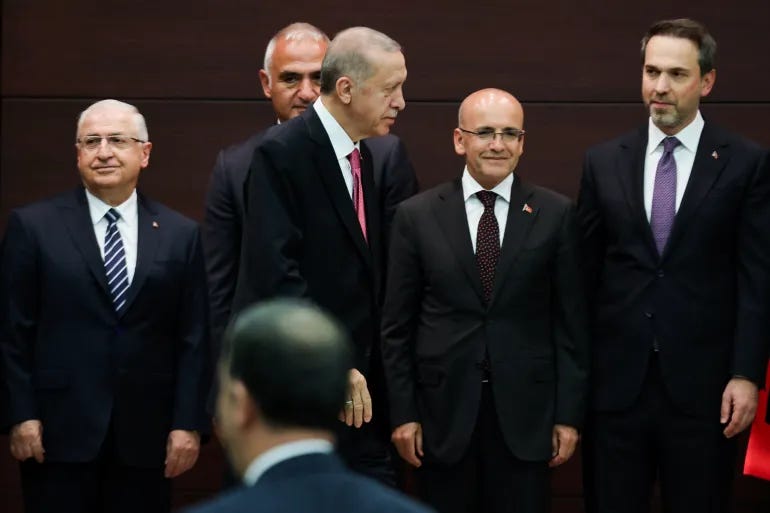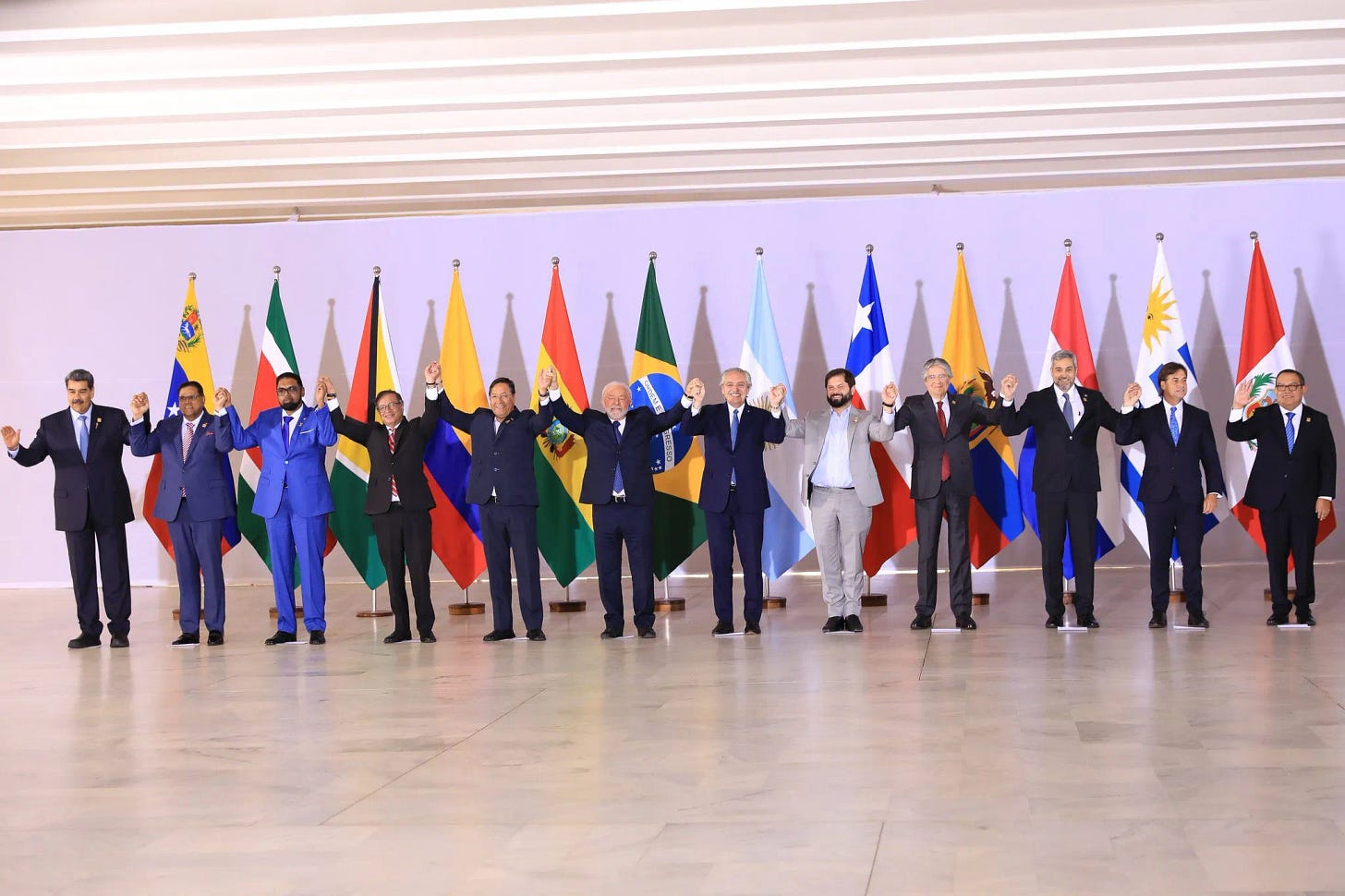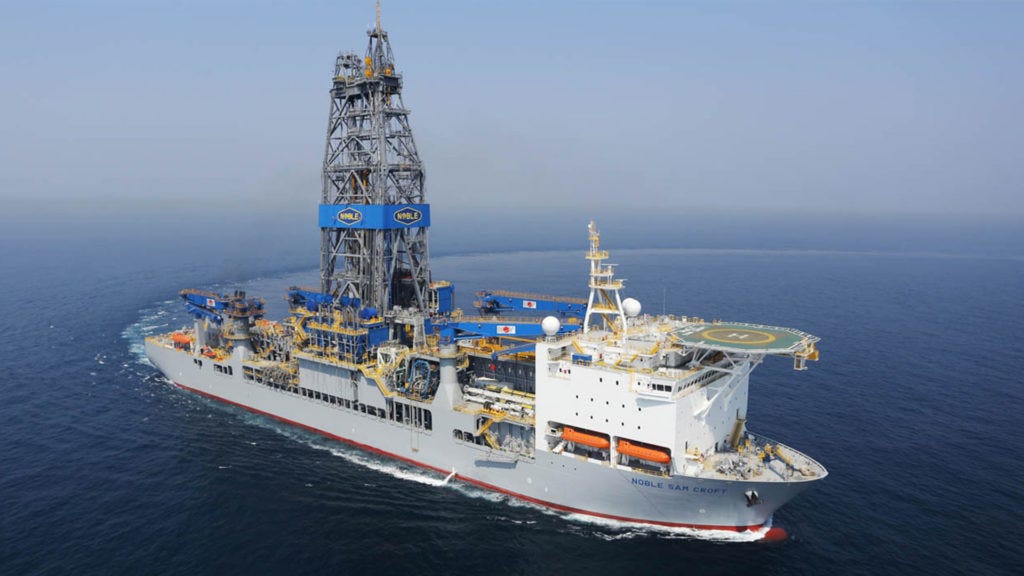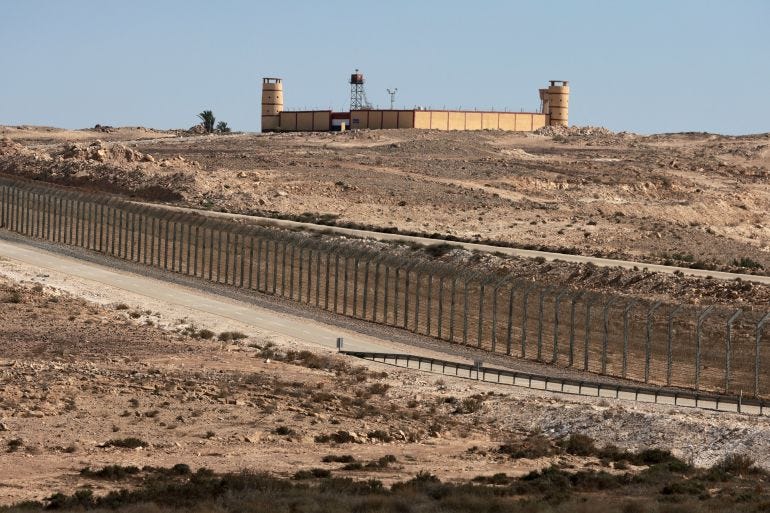This week - Lula's ambitions, Turkey out of cash, Suriname default deal, inflation slowdowns
Week of June 5th, 2023.
We are committed to our new section on central banks. We are waiting some important decisions in Eastern Europe, starting with Poland (June 6th) and Russia (June 9th) this week; the Czech Republic and Hungary will follow. BlackRock's Global Head of Emerging Markets Amer Bisat said that demographics will become a drag for emerging markets in the long term. A key attraction of such economies was the ever-growing population and labour force, which is now stagnating. We recommend Slim Mezlini’s assessment of China’s population dynamics.
Lula ambitions for South American union
"Brazil is back" was the phrase announced by Brazilian President Luiz Inacio Lula da Silva or Lula after victory in the 2022 elections. This phrase implied a return to international prominence for Brazil by focusing on building strong diplomatic ties and being proactive in resolving major conflicts. President Lula has already made several official visits to the U.S., the UK, Argentina and China among others, and is planning more trips to France and South Africa this summer. His current focus is rebuilding ties with nations like Cuba and Venezuela to strengthen unity and cooperation within the South American continent.
Lula and like-minded leaders are envisioning the creation of a new regional alliance. However, sceptics have brought up that many organisations have been created with hardly any impact, such as UNASUR, or severely limited without reaching their full potential, like MERCOSUR. For the most part, South American alliances in the current century have been built on ideological grounds, hardly affecting trade and the economy. Intra-continental trade is still insignificant; the largest partners are China, the US, the EU and other developed economies. Only Argentina, the neighbour with the largest economy, is among the top five partners, though taking up a small share (4-5%).

Maduro back on the stage
Just before the conference, Venezuelan president Nicolás Maduro was received by his Brazilian counterpart. The reopening of trade and diplomatic ties with Lula marks a turning point after an almost 8-year estrangement under his predecessors. The summit surfaced tensions, as Chile’s Gabriel Boric and Uruguay’s Luis Lacalle called out human rights abuses in Venezuela. Regarding sanctions, however, there seemed to be unanimity behind lifting them. This marks a clear difference to 2019-2021, when many governments in the region followed the US in cutting diplomatic ties and trade. Regional support was crucial in justifying US sanctions, but as time passes there are less reasons for Washington to sustain them. New data also showed that 25% of Venezuelan oil exports are bound to US terminals, benefitting from the exemption granted to Chevron.
Peace Hub to resolve conflict in Ukraine
The president’s most recent meeting was with Finnish President Sauli NIisto, who discussed the ongoing war in Ukraine. As part of his plans to turn Brazil into an important global actor, He has put forward a proposal to form a hub of neutral nations that can create a framework for an end to the war. Finland having joined NATO earlier this year, poses a challenge to its inclusion and status as a neutral state. Furthermore, Niisto declared that while Lula’s proposal was valuable it would be difficult to implement under current circumstances.
Turkey’s dwindling reserves

On Saturday, June 3, Erdogan was officially inaugurated for an unprecedented third term as the president of the Republic of Turkey. This came amid a tight election race that saw the incumbent president face off against his strongest opposition yet. Since Erdogan’s victory on May 28th, analysts have increased their warnings on a potential default. Turkey’s balance of payments has been worsening as the lira loses credibility. Throughout his presidency, Erdogan has kept interest rates low while sustaining high spending, decreasing the attractiveness of the lira for foreign investors.
Erdogan’s manifesto
For his new term, Erdogan has made pledges in his campaign to revitalize Turkey's economy which has been undergoing a major crisis following a sharp fall in the value of the lira, Turkey's national currency. In addition to this, Erdogan has made promises to make Turkey energy-independent within the coming decade through the discovery of new natural gas reserves in the black sea and the ongoing development of the Sakarya gas field. When Erdogan first won the presidency in 2014, experts noted that his economic track record was popular among voters. Now it appears that despite recent economic hurdles caused in part by Erdogan and his party's unorthodox policies, the Turkish electorate is willing to back him and his ambitious projects. However, based on this recent race, Erdogan will likely require his policies to succeed to win back a larger voter base.
Running out of reserves
Fears are growing that Turkey could be cut out from investment portfolios, as happened with Argentina and its currency crisis. This could have a lasting effect and harm the economy further. Investors from other emerging markets such as Russia and Gulf monarchies may be stepping up their investments. However, they may not be enough to prop up Turkish markets, while they could eventually buy up assets with steep discounts as developed-market investors exit.
Turkish ordinary people and businesses are attempting to find hedges to inflation. The stock market has seen an increase as many see it as a refuge. Eventually, it could become indexed to the value of the dollar or another reserve currency, as is the case in some countries with runaway inflation. Locals are also able to open special savings accounts created in 2021 as hedges to currency devaluation. They could be worth $121bn, and have paid out the equivalent to $4.7bn already.
There are some signs that the situation could change, as in this term Erdogan could be trying to present a more Western-friendly cabinet. All but two ministers are going away; the new team will include more technocrats and orthodox economics supporters. Notable names are the new finance and treasury minister Mehmet Simsek and vice-president Cevdet Yilmaz. Incumbent Interior Minister Suleyman Soylu, who accused the US of interference, will be replaced by Ali Yerlikaya, who was governor of Istanbul province.
Suriname offers future oil profits to bondholders
Suriname has reached a new deal with bondholders to exit its default. Investors will get a cut of potential future oil profits, while forgiving part of the South American country’s sovereign debt. The government in Paramaribo has been in talks with holders of $675 mn of foreign bonds for three years. They have agreed to losses of 25% on their bonds, in return for a warrant of 30% of annual oil royalties – if the government receives at least $100 mn. Hopes are up thanks to the development of a new offshore reserve; the scheme is set to last until 2050.
Suriname experienced a similar economic downfall as other commodity producers in the region, from 2014 onwards. Nominal GDP per capita stands at $5,560, down from its peak at $10,040 in 2014. The IMF is also projecting strong growth for the next five years, reaching $7,070. The country is not a major oil producer. Rather, the largest sector is mining, primarily for gold, which could account for 70% of export revenues. However, exploration projects are highlighting petroleum as the area with the most promising prospects. Neighbouring Guyana is currently experiencing an oil boom, as new reserves are discovered off its coast. This new development is boosting expectations for Suriname, and is an essential factor behind bondholders’ agreement.
Some analysts have hailed the deal as setting a precedent for other states in debt distress. Throughout this century, such agreements became less popular, mostly as borrowing government ended up paying well above their expectations. A notorious example is that of Argentina’s $95 bn default in 2001, where it promised to pay out when the annual growth rate surpassed 3%. Two decades and $10 bn later, the warrants are still weighing on Argentina’s financial problems, without attracting more investors.
Egypt: three Israeli soldiers killed in border clash
Three Israeli soldiers and one Egyptian security officer have been killed along the border between Egypt and Israel. The armed forces of Egypt and Israel have both launched an ongoing investigation into the incident and early reports have highlighted a potential link to a drug smuggling operation that occurred simultaneously. Statements from both Egyptian and Israeli officials have stressed that the incident would not result in geopolitical tensions. This marks the first clashes between Egypt and Israel since 2012 when multiple attacks throughout the Sinai region occurred. Though both nations went to war against one another, Egypt and Israel have been at peace since 1979 with growing cooperation over security and trade.
Central banks
This coming week we expect monetary policy announcements from the central banks of Poland (June 6th), India (8th) and Russia (9th). We also gathered some key findings from last week from Kenya, Tunisia and Algeria.
India
The Reserve Bank of India gained reassurance as inflation data for April showed a clear slowdown to an 18-month low of 4.7%. Much of Asia, including India, has been able to benefit from discounted fossil fuels from Russia, all while Europe saw price hikes. This has helped push inflation down in the region, although in India it was as high as 6 and 7% throughout much of 2022. Throughout many developed and emerging market economies alike, we are seeing slowdowns in consumer price inflation rates. For the most part, this is due to the main shocks of last year passing; prices are not falling but increasing at a slower pace. In April 2023, there was a 4.7% increase in consumer prices from April 2022, when the rate was 7.79%.
Russia
In Russia, inflation has also seen a steep slowdown from March, below its 4% target. Inflation was as high as 11% in February, exactly a year after the start of the invasion of Ukraine and the unravelling of Western sanctions on an unprecedented scale. The Bank of Russia has to deal with another, newer problem, however. Though the rouble gained some strength with high fossil fuel prices and capital controls soon after the invasion of Ukraine began, it has been losing value throughout this year.
Kenya
The Central Bank of Kenya the May 2023 Agriculture sector survey revealed the following key findings:
Retail prices of vegetables have declined and are expected to decline further over the coming months.
Supply of key food items is expected to increase due to recent harvests and higher rainfall.
Economic performance is expected to rise as the cost of consumer goods declines.
Tunisia
The Tunisian Central Bank annual account report reveals a 44.7% increase in liquidity injections in 2022 compared to the previous year. Experts note that the delayed IMF deal will likely result in further liquidations this year as the country’s ability to secure external funding remains constrained.
Algeria
Governor of the Algerian Central Bank, Bank of Algeria, Salah El-Din Talib held a tripartite meeting on Wednesday 31 May with the general managers of banks and financial institutions in the country discussing financial and economic developments









